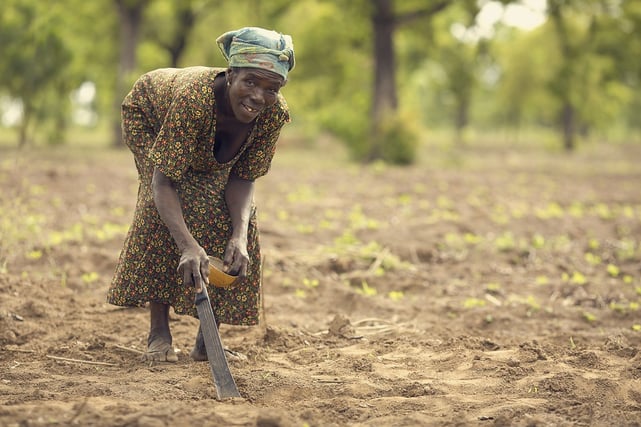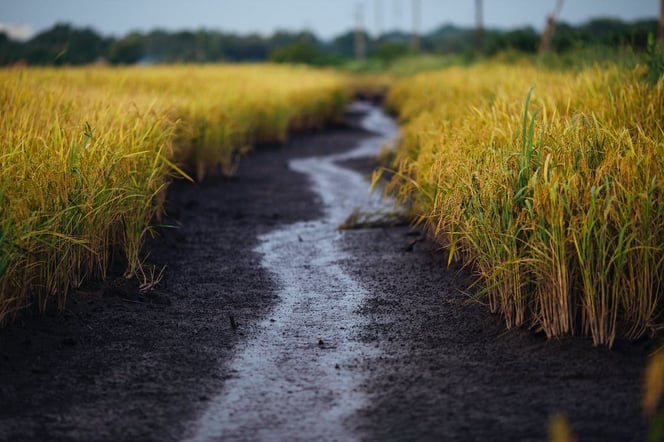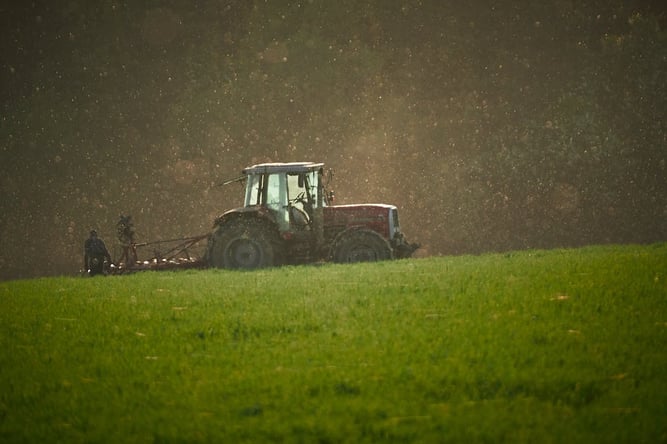In an effort to reduce CO2 emissions, the government has officially handed over a letter of authorization to the United Nations Development Programme (UNDP).
The Letter of Authorization facilitated the bilateral agreement between Ghana and Switzerland at a side event during the ongoing COP 27 on November 12 in Sharm El-Sheikh, where they signed a Letter of Intent.

The two countries signed a 1 million metric ton CO2 rice deal under Paris. In order to reduce one tonne of CO2 emissions in Ghana, it must grow 50 trees a year.

The details of the Switzerland and Ghana CO2 rice deal

The goals of Switzerland and Ghana's CO2 rice deal
The bilateral agreement paves the way for public and private institutions to collaborate to invest in Ghana's efforts.
All of this will help to achieve climate improvement and mitigate the trade of emissions credits with Switzerland in exchange for cash. They are considering maintaining Ghana's development advantages.
The new cooperation will allow green and low-carbon technology solutions to be adopted throughout the nation, which will have a wide range of positive social and environmental effects on the planet.
As DGB Group creates massive reforestation and afforestation carbon projects all over the world in accordance with the most stringent carbon standard.
The goal of Ghana's National Drug Code (NDC) is to increase climate resilience while reducing emissions by 15% to 45% below business as usual.
The Behavioral Analysis Unit (BAU) closely aligns with the country's development priorities.
The National Centers for Environmental Prediction is the main strategy for accomplishing these goals, but it depends on foreign backing and needs mixed financing to be implemented.


How does the CO2 rice deal impact both countries?
Climate mitigation initiatives can directly result in a variety of development benefits, including job creation, support for livelihoods, and food security, in addition to reducing CO2 emissions.
Article 6 of the Paris Agreement recognises that nations may explore voluntary cooperation in implementing their Nationally Determined Contributions (NDCs). These are their climate plans to support more ambitious mitigation goals and sustainable development.
In a statement, Ghana's President, H.E. Nana Addo Dankwa Akufo-Addo, urged both countries' private sectors to "see this bilateral cooperation as a step to further strengthen collaboration between Swiss and Ghanaian companies to identify commercially viable and sustainable development projects over the next ten years."
The Minister of Foreign Affairs, Shirley Ayorkor Botchway, read the president's statement. Also, he congratulated and thanked Professor Kwabena Frimpong-Boateng, the Minister of Environment, Science, Technology, and Innovation, and UNDP for helping to make the agreement process possible.
The other side of the benefits of this deal
The Ghana Climate Smart Rice Project will help train over 20,000 rice farmers, who produce over 80% of Ghana's rice, in sustainable agricultural methods, resulting in considerable reductions in methane emissions.
The intervention will also boost farmers' resilience and raise the effectiveness of water usage by giving them additional cash from carbon revenue.
This agreement will enable national enterprises to spearhead climate action by opening the door to commercial projects.
By working together, Ghana and Switzerland are already opening the road for other nations to investigate cutting-edge climate funding options that align with Article 6 of the Paris Agreement.









